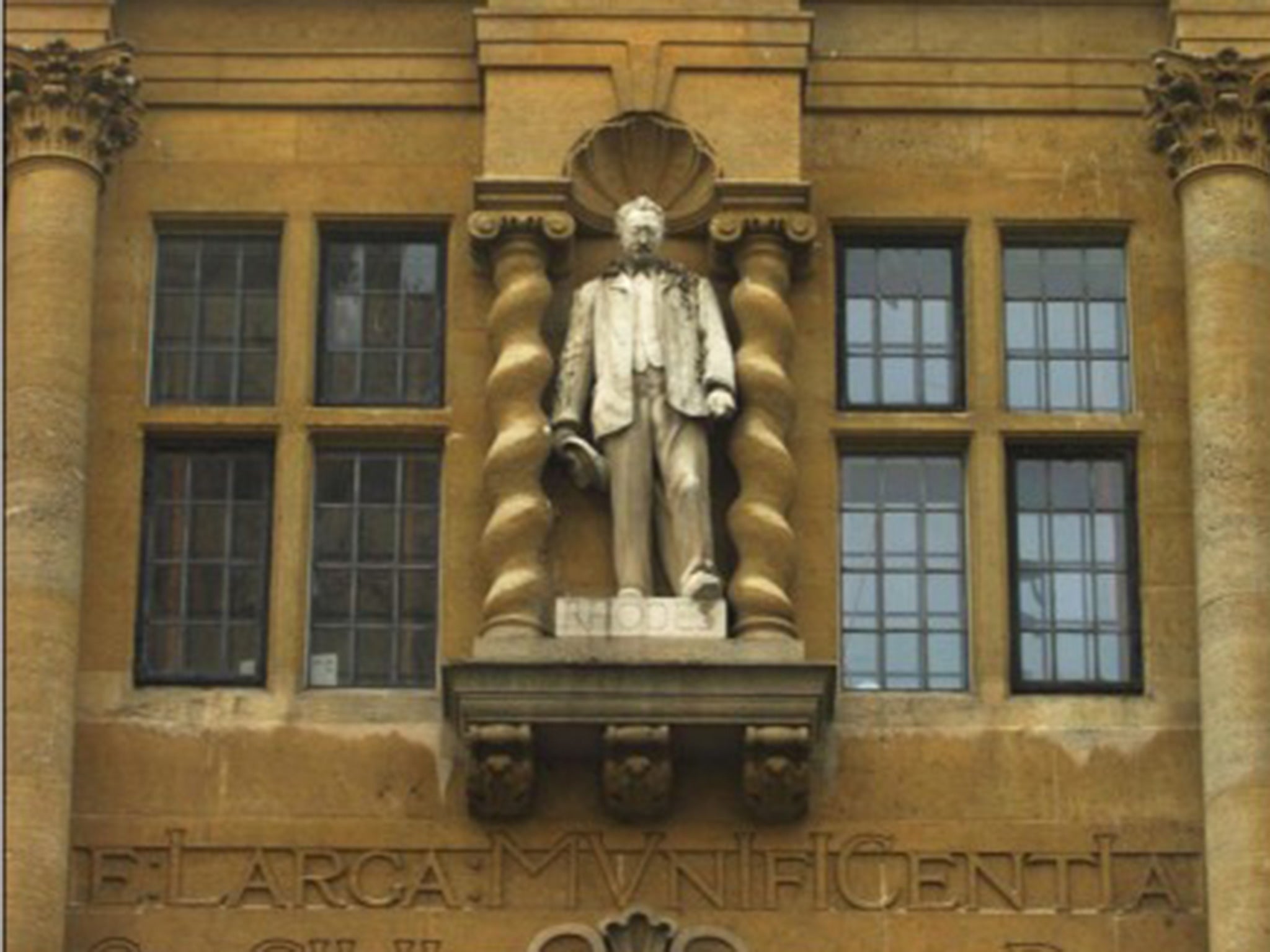Cecil Rhodes statue row: Oxford academics propose sign distancing Oriel College from imperialist's views
Oriel already has temporary notice by statue 'clarifying its historical context and the college’s position on Rhodes'

Oxford academics are proposing a compromise solution to the Cecil Rhodes statue row that would see a sign erected making it clear the college does not agree with his views.
Oriel College drew criticism last week by announcing a consultation on removing the Rhodes statue from its High Street frontage, after thousands of students complained that his racist and colonialist opinions were unacceptable.
Rhodes, a businessman and imperialist, has been described by some the founding father of Apartheid. But his vast legacy has helped thousands of students from around the world obtain an Oxford education, through Rhodes Scholarships.
Under a “third way” plan now being discussed at the college, the statue would be retained. However, an information board would be placed nearby explaining the history and context of Rhodes’ life and his involvement with Oxford – accompanied by a statement making it clear the college disassociates itself with his many of his views.
This proposal will be considered as part of the college’s formal consultation on the future of the statue, The Independent understands.
The college has already put up a temporary notice in a nearby window “clarifying its historical context and the college’s position on Rhodes”.
The text says: “This building, completed in 1911, was funded by a bequest from Cecil Rhodes. The statue of Rhodes erected at the time of construction and is part of a Grade II* listed building.
“Many of Cecil Rhodes’ actions and public statements are incompatible with the values of the College today. In acknowledging the historical fact of Rhodes’ bequest, the College does not in any way condone or glorify his views or actions.”
The controversy began when a campaign group called Rhodes Must Fall Oxford collected 2,300 names to a petition urging that the statue be dismantled, and a Rhodes plaque at an Oriel-owned property be taken down.
It stated that they violated the university’s declared aim of “fostering an inclusive culture which promotes equality, values diversity and maintains a working, learning and social environment in which the rights and dignity of its staff and students are respected”.
In response, Oriel College last week announced it intends to take down the plaque - and has already started discussions with the city council over doing so. The college is embarking on a six-month consultation exercise on what to do with the statue. If they ultimately top for demolition, the college will submit an application to Oxford city planners.
Conservationists may object to the removal. Chris Smith, planning director of Histric England - the public body which looks after England’s historical environment, said: “Removing the statue would call for listed building consent from Oxford City Council.
“Historic England would be consulted as part of this process and we view each case on its merits. Our job is to be as objective as possible, even in the fact of strong feelings and public sentiment one way or the other.”
The students’ campaign has brought a sharp rebuke from Cambridge classicist and TV historian Mary Beard, who in a blog earlier this week for the Times Literary Supplement, told them: “I really don’t think you can have your cake and eat it - you can’t whitewash Rhodes out of history but go on using his cash.”
Around 8,000 students from all over the world have benefitted from Rhodes scholarships to Oriel College - including one of the leadinbg campaigners, Ntokozo Qwabe, who replied by saying: “There is no hypocrisy in taking back money that was looted from your people.”
Join our commenting forum
Join thought-provoking conversations, follow other Independent readers and see their replies
Comments